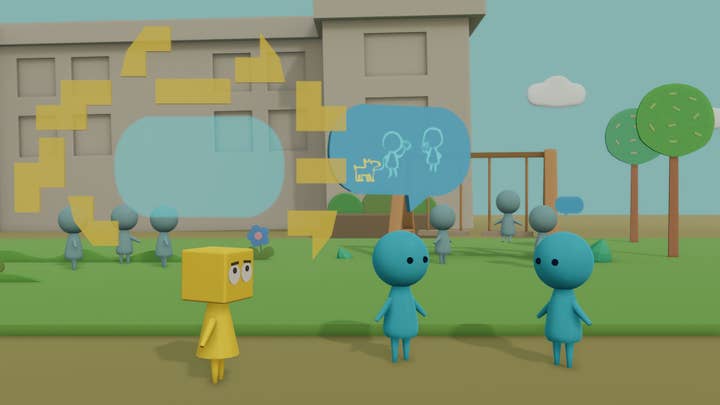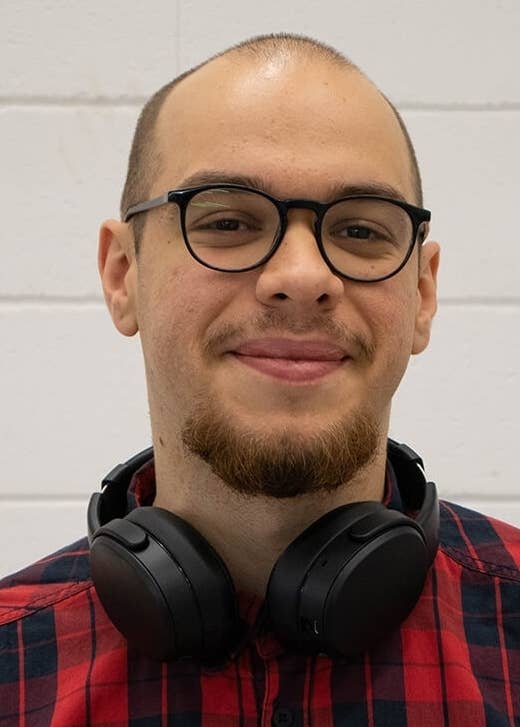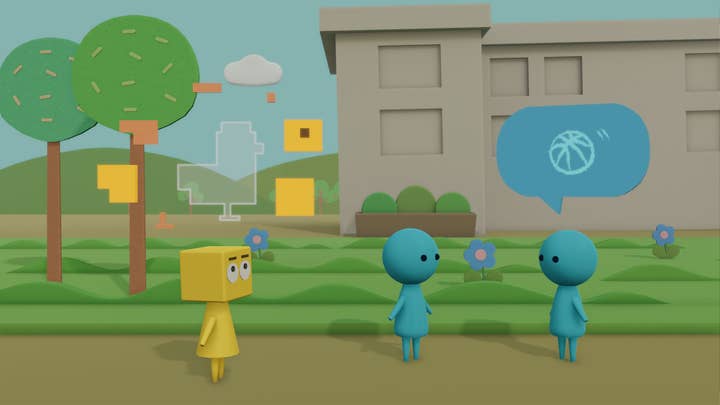Autistica Play launches inclusive game jam
Charity hopes to show how games can be used to raise awareness and funds for research into the challenges autistic people face
Today officially kicks off the Autistica Play Jam, a friendly competition designed to be more inclusive than any other before it -- and with the hopes of helping to diversify the industry.
Autistica Play is Austica's games-focused arm, which launched last year. Having previously held events and issued advice on how the industry can better accommodate autistic and neurodiverse people -- both as professionals and players -- the organisation wanted to do something more impactful in 2020. The first step is the jam.
Games partnerships manager Jake Mackey explains: "While most game jams have one theme, often expressed as a single word open to many interpretations, the autism community has a range of needs and priorities, so focusing on one just didn't seem fitting.
To raise awareness of this diversity, Autistica Play Jam has three themes, all based on the autism community's research priorities. These are:
- 'Hidden in Plain Sight' -- which centres around the difficulties autistic people face, plus the additional challenges of co-occurring mental health issues such as anxiety or depression, and the barriers that prevent them reaching out for help
- 'Communication' -- a facet of life many autistic people struggle with. In fact, one in four speak no or few words so need other ways to express themselves
- 'Office Life' -- based on research showing that while 77% of autistic adults want to find paid employment, only 16% have been hired, inviting participants to think about the barriers preventing these people from securing a job
On the event's website, each theme is listed with more facts, figures and links to research on these topics in order to give participants the resources they need to make more informed games.

The jam is run in partnership with Payload Studios and its Tentacle Zone initiative. And the entire venture has been organised to demonstrate how the industry can welcome more neurodiverse people.
"I've been toying around with the idea of a charity game jam for a while now, and when Jake and I met a while back, we knew that this could be a really good collaboration," explains Payload's events coordinator Chris Filip. "For us, this is about being the change in the games industry that we want to see, making it a more accessible and inclusive one. We wanted to remove barriers like location and the mental strain that comes with jamming over 48 hours."
He continues: "People have started comparing the typical 24-hour or 48-hour game jams with crunch culture and talking about how that helps propagate that idea, or glorify the image of staying in one place for 48 hours, sleeping under a table and making a game. When Tentacle Zone took part in the Global Game Jam, we sent people home at 9pm at the latest, so with this we wanted to take that one step further."
The Autistica Play Jam lasts a full week, running from today until the morning of Monday, March 9. This enables teams to pace themselves and take more time with their designs. It's also completely online -- including the support available from members of both Autistica and Payload, such as Discord servers for people who need help -- so anyone can enter, no matter where they are.
"It was really important to remove the physical and geographical barriers, but also to take into consideration some of the adaptations that may be needed to remove some of the stress factors," says Mackey. "The themes and all of the information was released on Friday, so before the game jam even began, people could spend time reading through it, processing the information and having more time for planning before they even need to tap a key."
"There's never been a better time for the awareness around neurodiversity in the industry to be discussed, and for us to work toward a change"
Jake Mackey, Autistica Play
And the organisers will be adapting the process as needed as the jam goes forward. Filip reports that in the weeks before the competition began, autistic people were joining the Discord server and discussing how this would be the first game they had ever made. For them, video games are a medium through which they can express what it's like living with autism -- another goal for Autistica Play.
"We want to explore how we can use games as a medium to tell stories from voices who may be left out of the conversation in other situations," says Mackey. "Everyone and anyone is welcome and invited. It doesn't matter if you've ever taken part in a game jam -- if you were ever going to, let it be this one. This is about raising awareness for an important cause, but also together creating a template that we hope can be used as a more inclusive game jam structure others can use."
He continued: "This is also about reaching a new audience for autism research. Games as a medium can have much more impact than reading a book or watching a movie, it's a very interactive experience. I think there's something there that we need to explore more in the games that are created."
A prime example of this is Disconnected, a game by independent developer Xu He, who is self-diagnosed as autistic. The title demonstrates autistic traits with metaphorical gameplay mechanics, and also features insightful voiceovers from people who experience these traits.
"There's been so much positive feedback [to Disconnected] from gamers and non-gamers, who said it helps them understand what it might be like to be autistic," says Mackey. "There's definitely something viable there. For me, it's the beginning of a conversation. I would like to see this be the first of many."
To further spread the message of Autistica Play Jam, the shortlisted games will be showcased at Payload Studios on Monday, March 9, and presented at an event hosted by the BFI Certification Unit on Thursday, April 2 -- World Autism Awareness Day. All applicable submissions to the jam will also be published on Itch.io and the Autistica Play website.

"It's important that it's not only the shortlist that is recognised," says Mackey. "Perhaps there are games that are still in development, or didn't quite get the shortlist, but the theme, the concept, the direction, is important to recognise."
The Autistica Play Jam is not just about raising awareness, it's also about raising funds. On average, £2,756 is raised for cancer research every three minutes, plus £471.32 for dementia, but only £35.82 is raised for autism research. The jam is, of course, free for people to participate in, but Mackey and his team are running a JustGiving campaign around it in the hopes of raising £1,000 across the week.

"There's real research behind the themes developers will be making games about," he says. "That research is life-changing and needs real funding."
Finally, the hope is that demonstrating how to make a game jam more inclusive for neurodiverse people will encourage the industry to think about how it can better accommodate them, both as employees and consumers. The central message is that games firms need to be informed about these traits and how to support those who live with them.
"We know that the industry is keen to be more inclusive but many don't know where to start. Even small adjustments can make a massive difference," says Mackey. "We're open to working with anyone who wants to become more accessible."
He continues: "The thing to know about autism is it's highly individualistic. What might work for one person may not for another, but there are adaptations and considerations we can all do to be more inclusive and understanding."
Last year, Autistica Play released guidance on simple ways to adapt your workplace and processes for autistic people -- something the charity's ambassador Dominic Shaw wrote about for GamesIndustry.biz back in October.
"That's a great place to start," says Mackey. "It's not dos and don'ts, it's just concepts to consider."
He also points to the timing of the Autistica Play Jam as part of an ongoing narrative. It not only follows the charity's release of its first work adaptations report, but also the results of UKIE's first games industry census and its Raise the Game pledge.
"There's never been a better time for this conversation or these types of partnerships to happen, for the awareness around autism and neurodiversity in the industry to be looked at and spoken about, and for us to work toward a change," he concludes. "As Chris said earlier, being the change that we want the industry to be."

